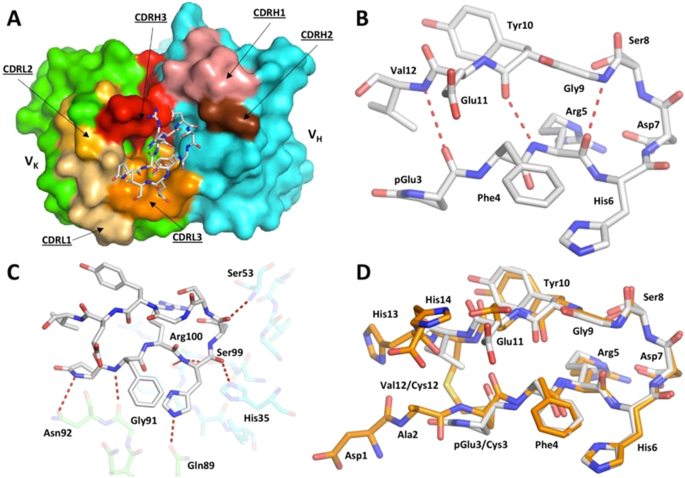
Potential vaccine against Alzheimer’s show promise in mice
Published By Alzheimer's Research UK [English], Sun, Nov 14, 2021 7:00 PM
A team of scientists have developed a vaccine that reduces Alzheimer’s symptoms in mice with features of the disease. The scientific journal, Molecular Psychiatry, published the discovery today (Monday 15 November).
A research team at the University Medical Center Göttingen and University of Leicester collaborated with scientists at the contract research organisation, LifeArc, to develop a new treatment approach for the leading cause of dementia.
Alzheimer’s disease affects roughly two thirds of all people with dementia in the UK.
Using two types of mice with features of Alzheimer’s disease, the scientists looked at the effect of injecting an antibody and engineered vaccine they developed.
The treatments target a shortened form of the hallmark Alzheimer’s protein, amyloid, which other Alzheimer’s drugs in development have not targeted.
Researchers looked at PET brain scans of the mice after treatment. They found treatment improved brain metabolism and also reduced the number of brain nerve cells lost.
They also found the mice performed better on a behavioural task.
Dr Susan Kohlhaas, Director of Research at Alzheimer’s Research UK, said:
“Ensuring a healthy pipeline of potential new therapies is critical to providing treatment options people with diseases like Alzheimer’s deserve. Currently there is no disease-modifying treatment available for people with Alzheimer’s in the UK, making drug development even more urgent. “In this thorough and well-conducted research carried out in mice with features of Alzheimer’s disease, scientists found a vaccine administered through injection found the intended target and helped improve metabolism in brain regions associated with memory and thinking. Early results in a behavioural task suggest the mice had improved memory and thinking, hinting that this could be a promising new approach, and one that has so far not been tested in Alzheimer’s drugs in clinical trials. “Like any new drug, this treatment will need to go through a series of clinical trials in people and while this discovery offers hope, this approach is a long way off being proved successful in humans. “It’s essential that to maintain momentum in dementia research new approaches like this are explored. We must see continued investment into dementia research to ensure no stone is left unturned when it comes to potential new treatments. And although this research is still in early stages, with potential new treatments making their way through trials, we must start to prepare the UK’s health system to be ready for new dementia treatments now.”
Read the research paper in the journal, Molecular Psychiatry. The paper is titled ‘Discovery of a novel pseudo β-hairpin structure of N-truncated amyloid-β for use as a vaccine against Alzheimer’s disease’.
Press release distributed by Media Pigeon on behalf of Alzheimer's Research UK, on Nov 14, 2021. For more information subscribe and follow




